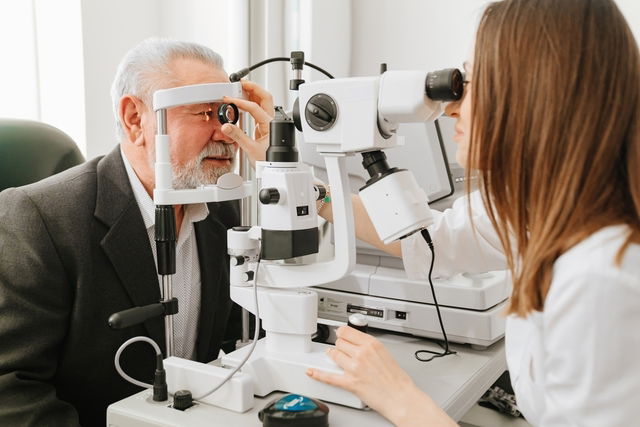A black eye can be caused by a self-inflicted injury with a finger or fingernail, or it can be caused by dust irritation. A black eye can also be the result of direct trauma, a burn or direct contact with chemicals, like cleaning products.
Black eyes may be accompanied by symptoms like redness and discomfort, while more serious injuries can also cause pain, tearing and difficulty seeing.
Due to the risk for infection and even vision loss, a black eye and eye injuries should be assessed by a doctor or ophthalmologist as soon as possible. The doctor may prescribe medication, like eye drops and antibiotics, to relieve symptoms, lathough some cases may require surgical repair.

Main causes
The most common causes of a black eye are:
1. Corneal abrasion (from dust or fingernails)
A corneal abrasion describes a scratch the cornea, which can occur due to rubbing your eye intensely, dust that gets in the eye, sleeping with contact lenses or debris in the eye.
These traumas can cause the sensation of something in your eye, as well as symptoms like pain, redness, tears and difficulty seeing.
What to do: Wash your eye with plenty of running water to relieve discomfort. Most times, the scratch will resolve within 2 to 3 days without any specific interventions. However, you should still see a doctor to rule out the risk for infection. The doctor may deem antibiotics necessary to prevent or treat any infections.
If the scratch is caused by foreign body stuck in the eye, you should avoid rubbing your eye or trying to remove it with your fingernails or tweezers. You should see a doctor to have the object removed appropriately.
2. Perforations, cuts or punches
Eye wounds caused by pointy or sharp objects, like a pencil, tweezers, utensils and direct punches can injure the eyeball and cause symptoms like swelling, bleeding, pain, redness, tears and vision problems. If the object is contaminated with microorganisms, there is a higher risk for infections.
What to do: It is important to proceed to the emergency room for treatment. The doctor may prscribe antibiotics, while serious cases may require surgical repair. Th e object that caused the injury should not be removed from the eye if it become lodged. The ophthalmologist will assess the eye first before proceeding with a removal. You should also avoid coughing and applying pressure on the eye to prevent further injury.
3. Inner eye wounds
Inner eye wounds can be a result of direct trauma to the eye. It can cause bleeding that may be noted by bruising in the eyeball, as well as redness, pain or vision problems.
What to do: If you suspect any wounds in the inner eye, you should proceed to an emergency room for assessment and treatment as necessary.
4. Burns from heat or sparks
Wounds caused by heat or sparks can cause symptoms like light sensitivity, pain, redness and tearing. Burns from sparks can take 12 hours before the first symptoms emerge.
What to do: Burns from heat should be washed with cold running water followed by a cold compress to the eye until the wound is assessed by a doctor. Dressings should be avoided, as they can cause wounds and ulcers on the cornea. You should go to a hospital for any eye burn as soon as possible for assessment.
5. Chemical burns
Burns from chemicals can be caused by working with substances like acids and gas, from exposure to car batteries or from cleaning products.
These injuries can cause symptoms like pain, redness, light sensitivity and vision problems.
What to do: Due to the risk for permanent vision loss, you should go to an emergency room as soon as possible for treatment. Treatment usually involves a thorough eye irrigation with saline or water to neutralize the irritation caused by the substance. Treatment with medications like antibiotics or eye drops may be necessary.
Possible complications
If left untreated, a black eye can lead to:
- Permanent vision loss
- Infections
- Cornea ulcers
To reduce the risk associated with a black eye, it is important to see an ophthalmologist as soon as possible, especially in cases of wounds, foreign bodies and burns. .
